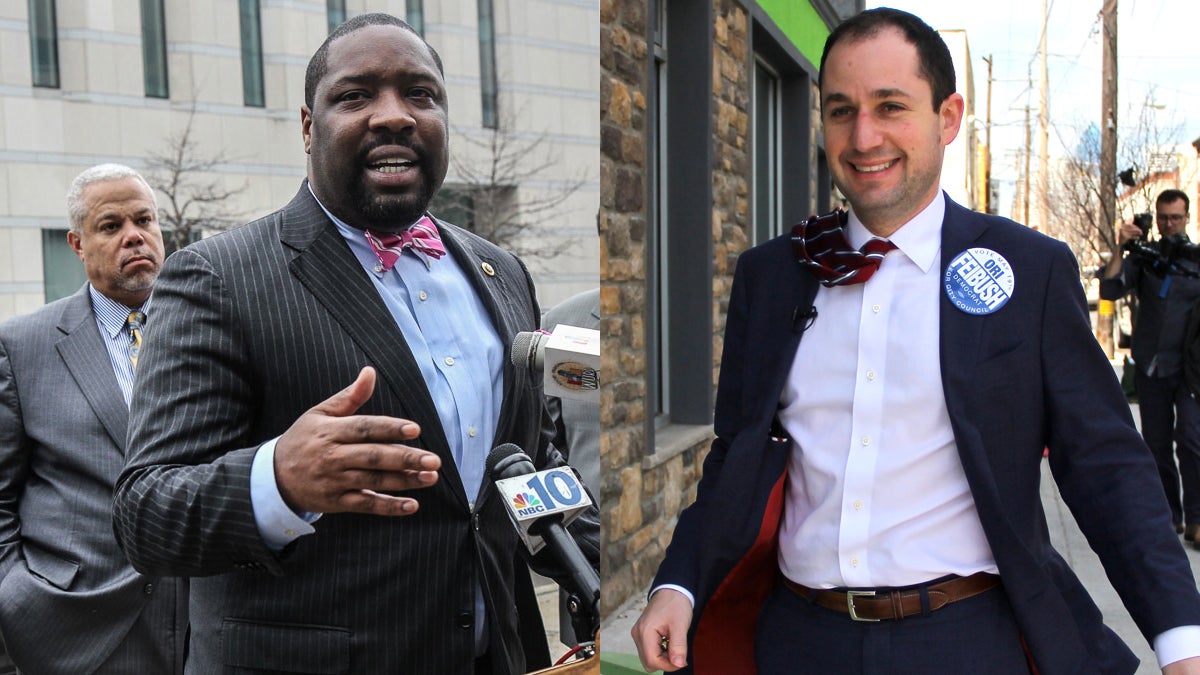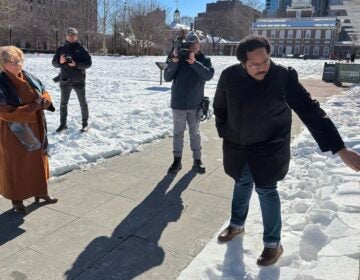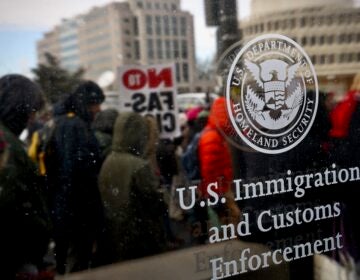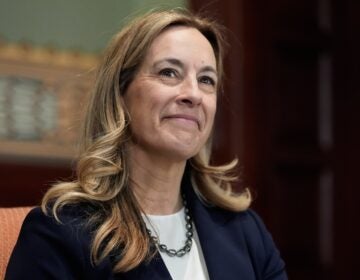It’s Johnson v. Feibush in toughest Philly City Council district primary
Listen
City Councilman Kenyatta Johnson and Ori Feibush (NewsWorks file photos)
All 17 seats on Philadelphia City Council are up for election this year, but no race is more competitive or more expensive than the match-up in the second district where incumbent Councilman Kenyatta Johnson is fighting a challenge from developer Ori Feibush.
It’s more than just a strong challenge to an incumbent. Some see this race as a referendum on gentrification and racial tensions in the city’s neighborhoods. The diverse second district spans South and Southwest Philadelphia, including the oil refineries, sports stadiums, the airport, and stretches all the way up to Rittenhouse Square in Center City.
The challenger
Feibush presents himself as an outsider running against Philadelphia’s political establishment, which he says is failing the city’s neighborhoods.
“Philadelphia’s figured out a way to create the greatest barriers to entry in neighborhoods that most need the amenities and the jobs,” said Feibush, who has put $250,000 of his own money into the campaign, according to the most recent campaign finance filings.
Having grown up in the Philadelphia suburbs, Feibush settled down in the city after graduating from Temple University.
His company, OCF Realty has done much of its redevelopment in Point Breeze where both he and his opponent live. We recently met at one of Feibush’s three OCF coffee shops, which have become a trademark of his development efforts.
While most developers prefer to work on the sidelines of politics, Feibush says he wants to get on City Council to make big changes such as selling off city-owned vacant lots to fund endowments in neighborhood schools and installing securities cameras on every street corner.
He also proposes changing the way developers pay for stormwater management. Rather than implementing their own plans to deal with runoff, Feibush believes developers should pay what he calls “stormwater impact fees” for every square foot, generating revenue for community projects.
Feibush insists he wants to improve communities, but does he have an ulterior motive to make a bigger return on his investments in neighborhoods like Point Breeze?
“If I was doing anything relating to politics for my own pocket, a couple of checks to a couple of key council people would have been enough to develop anything I’d ever wanted to,” he said. “I’m not willing to play into that mentality.”
Feibush vows to get out of the redevelopment side of his business if he is elected and says he has already divested from all but one of his properties — a warehouse at 20th and Wharton Streets where he envisions 50 new homes on a property zoned for industrial use.
Feibush has a reputation for being outspoken and aggressive, and has become a controversial figure in Point Breeze and beyond.
He made headlines when the city threatened to sue Feibush for cleaning up an abandoned lot he did not own next to one of his OCF coffee shops. He has also been accused of threatening opponents to his development projects with lawsuits, something Feibush now says he regrets, but not without reaffirming his position that he was being slandered.
“I was frustrated to see somebody making up stories about me,” he said, “But in the same breath, I should have just let it roll off my back. I should not have responded. It was a mistake.”
The incumbent
If Feibush is the well-financed outsider bucking the political system, Johnson presents as the “constituent services guy” with the backing of powerful Philadelphia Democrats, including former Governor Ed Rendell and Mayor Michael Nutter.
Born and raised in Point Breeze, Johnson is a disciple of the late state Sen. Hardy Williams, the father of the mayoral candidate and current state Sen. Anthony Williams. (Johnson’s wife, Dawn Chavous is Anthony Williams’ Chief of Staff.)
Johnson first met Hardy Williams when he was a student at Mansfield College visiting the Statehouse in Harrisburg for a swearing-in ceremony. Williams soon became Johnson’s mentor.
“He always taught me to put the interests of the people first and foremost and I admired that in him,” Johnson said in an interview at his campaign headquarters on South Street.
Johnson started out his political career as a senate staffer and then served one and a half terms as a Representative in Harrisburg. He left the Statehouse to begin his first term on City Council in January 2012.
Johnson says he is passionate about raising the minimum wage and lobbying the state legislature for a fair school funding formula, but what he enjoys most is tackling what he calls the “bread and butter issues” that are important to residents.
“You cannot minimize the fact that a person wants their alleyway cleaned or a person may want you to organize various town hall meetings that focus on improving the quality of their neighborhoods,” he said.
The councilman has also devoted himself to the cause of the non-union workers at Philadelphia International Airport who have been pressing for higher wages.
Last year, controversy swirled around Johnson’s nonprofit Peace Not Guns after it was revealed the organization’s website falsely claimed was a federally-registered 501(c)3 — a requirement for soliciting donations. Johnson says he is no longer on the board of Peace Not Guns, which he says is “in the process” of filing for federal status.
Johnson also made several corrections to his campaign finance filings for the years 2012 and 2013 which the Philadelphia Inquirer reported showed tens of thousands of dollars in additional expenses and contributions.
He claims he alerted the city’s Board of Ethics to the errors and has since hired a new campaign treasurer, but does Johnson have a problem with paying attention to details? Johnson says he’s learned from these incidents.
“Of course I’ve learned from it, just to make sure in moving forward in the future, my operation is running strong and just tight around the board,” he said.
A race about gentrification?
It is not the first time Johnson has run against a real estate developer — he beat Barbara Capozzi in the May 2011 primary by 40 votes.
Political insiders predict another close race this year and they give Johnson the edge because he is a former State Representative and has wide name recognition among older residents who tend to get out to the polls.
Both Feibush and Johnson tout their diverse support throughout the district, but tensions over redevelopment in a quickly changing city form a complicated backdrop to this council contest. A documentary crew following the race is examining it as a referendum on gentrification.
In Philadelphia, City Council members have a lot of influence over development projects in their districts under a privilege called “councilmanic perogative.”
Johnson paints Feibush as a market-rate developer who contributes to a process that pushes long-time residents out of their homes, while Feibush portrays himself as a candidate interested in helping to support the district’s neglected neighborhoods.
Last year, Feibush filed suit against Johnson in federal court, alleging that he blocked some of his development projects as “political retribution.”
The candidates also offer conflicting messages about what’s at stake.
Feibush is part of a movement to reform City Council by electing people who have not forged their careers in politics as exemplified by the crowded race for the seven at-large seats. He says City Council is “not well-rounded” and is holding Philadelphia back.
Citing the impending visits from Pope Francis and the Democratic National Convention, Johnson is campaigning on a positive message about the city and its politics.
“We’re making some great strides,” he said.
WHYY is your source for fact-based, in-depth journalism and information. As a nonprofit organization, we rely on financial support from readers like you. Please give today.




